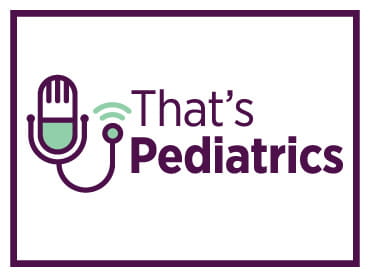Genetic diseases in children need unique treatment. They get expert care at UPMC Children's Hospital of Pittsburgh's Division of Genetic and Genomic Medicine. Under the guidance of Jerry Vockley, MD, PhD, these kids get the highest quality care.
Our clinics diagnose, evaluate, treat, and care for kids with genetic diseases. Genetic and genomic diseases are due to changes to the genome. They include diseases caused by:
- Changes to the chromosomes, the physical structure of our genes.
- Changes to the genetic code, the instructions the body uses to function and grow.
The expert teams of doctors and staff work together to give the best possible care for your child. Our care teams typically include:
- Doctors, nurses, and other specialists who diagnose and treat genetic diseases.
- Genetic counselors.
- Dietitians who treat kids with metabolic diseases.
Outpatient Services
Our outpatient clinics treat kids who are not admitted to the hospital. They include:
Inpatient Services
The Division of Genetic and Genomic Medicine's inpatient service works with kids in the hospital. We work with multiple hospitals in the Pittsburgh area, including:
We diagnose kids in the hospital with rare genetic diseases. We also care for these kids, working to meet their unique needs. These may include:
- Medical treatments.
- Nutritional therapy or advice.
- Psychosocial testing.
Our inpatient service also takes part in research, clinical trials, and other academic work. Our goal is to broaden the use of genetics in hospital settings to learn what causes disease.
Educational Programs
We have fellowships and residencies for doctors who want to focus their careers on genetics. We nurture the next generation of pediatric geneticists.
Research
The Division of Genetic and Genomic Medicine's research program treats and studies genetic disorders. Our research helps us learn about the biology of these disorders. We also work to find better treatments for genetic diseases through clinical trials.
Make An Appointment
Plan a visit or consultation with us at 412-692-5070.
Referral Requirements
You need a referral to visit the Division of Genetic and Genomic Medicine at UPMC Children's Hospital of Pittsburgh. The referral should come from your primary care physician (PCP) or a UPMC Children's doctor.
To make sure that your health insurance pays for the visit, you may need authorization from your insurance or PCP. Our staff can help you sort out insurance issues.
When your doctor refers you, they will give a reason. They'll fax the division their clinic notes and lab reports. We may request other health records from other visits, as well.
Before your visit, the Division of Genetic and Genomic Medicine must have all your forms filled out.
Genetic Counseling Service Referrals
If your doctor refers you for genetic testing, you'll have a visit with the experts at the medical genetics clinic. You can get a referral from your PCP or another doctor outside UPMC Children's Hospital of Pittsburgh.
You'll need a referral from a UPMC Children's doctor for a visit with the genetic counseling service. They'll request counseling based on specific genetic testing. This referral will be in our system to ease scheduling.
For questions or more information, please call the office at 412-692-5070.









